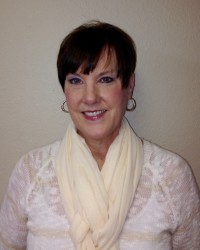Traveling with Children for the Holidays?
Christmas is here, and New Year’s Day is not far behind, which means that many families will be traveling by car and airplane to visit with friends and relatives. This is an appropriate time to stop and think about having your child in the proper car seat before planning your trip. Although parents always want to protect their children, studies show that nationally, 3 out of 4 car seats are not used correctly. For a car seat to best protect your child, it must be the right seat for your child’s age, weight, height and developmental stage, and must fit properly in your vehicle while being installed correctly and securely.
Children are at greater risk than adults in a vehicle crash. In fact, motor vehicle crashes are one of the leading causes of death for children 14 and under. Safety belts and car seats are the single most effective tool in reducing these deaths and injuries. Unfortunately, in 2015 alone, less than half of the children killed in vehicle crashes in Texas were known to be restrained.
That’s why the Texas A&M AgriLife Extension Passenger Safety Project is urging all parents and caregivers to secure children properly in age- and size-appropriate child safety seats in the back seat of your vehicle, which is the most effective thing you can do to protect them in the event of a crash. In fact, in motor vehicle crashes, child safety seats reduce the risk of fatal injury by 71 percent for infants and by 54 percent for toddlers. Get a free inspection by a certified Child Passenger Safety Technician to make sure you are using the child safety seat correctly. To locate a technician in Texas, visit: http://buckleup.tamu.edu. Technicians can provide hands-on advice and instruction.
If you are traveling by plane, it is always safest to purchase a separate seat for your child, and bring an FAA-approved car seat. Most car seats, except for booster seats, are approved for use on an airplane. Turbulence is the greatest danger for a child on an airplane trip, and a properly installed car seat can protect your child from injuries due to being thrown around in the plane. Traveling with your car seat will also ensure that you will have it ready for your use when you arrive at your destination.
Follow these guidelines from American Academy of Pediatrics to keep your children riding safely:
- Infants and Toddlers – Rear-facing Only and Convertible Seats: All infants and toddlers should ride in a rear-facing seat until they are at least 2 years of age or, preferably, until they reach the highest weight or height allowed by their car seat manufacturer.
- Toddlers and Pre-schoolers – Convertible or Forward-facing Seat with a Harness Seats: Children who have outgrown the rear-facing weight or height limit for their convertible seat should use a forward-facing seat with a harness for as long as possible, up to the highest weight or height allowed by the car seat manufacturer.
- School-age Children- Booster Seats: Children whose weight or height exceeds the forward-facing limit for their car seat should use a belt-positioning booster seat until the vehicle seat belt fits properly — typically this is between the ages of 8-12 years old.
- Older Children – Seat Belts: When children are old enough and large enough to use the vehicle seat belt alone, they should always use lap and shoulder seat belts for the best protection.
Remember: All child passengers under age 13 should ride securely restrained in the back seat, where they are safest — every trip, every time. Take time before you leave to make sure that the holidays will be a safe and enjoyable time for your family. Buckle everyone up correctly on every trip!
Hispanic Diabetes Series
If you know of anyone interested in attending a diabetes education series targeted toward Hispanic audiences, please share this information. ¡Si, Yo Puedo Controlar Mi Diabetes! is a seven-lesson series to help individuals with type 2 diabetes learn to control their diabetes by developing self-care skills, improving eating habits, increasing physical activity, preventing complications, and improving quality of life. Each session will be taught in Spanish and led by health professionals.
Sessions will take place at the Texas A&M AgriLife Extension Office, 1200 W. Houston, in Sulphur Springs on January 8, 16, 22, 29, February 5, 12, and 19 (all sessions are on Mondays with the exception of the second session). Two times are being offered – 1:30 and repeated at 5:30. To register, contact Angela Doddy with Christus Trinity Clinic at 903-244-1424, or the Extension Office at 903-885-3443.
Closing Thought
If you’re troubled and you can’t sleep, count your blessings instead of sheep, and you’ll fall asleep counting your blessings – White Christmas Movie
From our staff to you, Merry Christmas!

Johanna Hicks
Texas A&M AgriLife Extension
Family & Consumer Sciences
1200-B W. Houston
P.O.Box 518
Sulphur springs, TX 75483
903-885-3443 – phone
903-439-4909 – Fax
[email protected]





